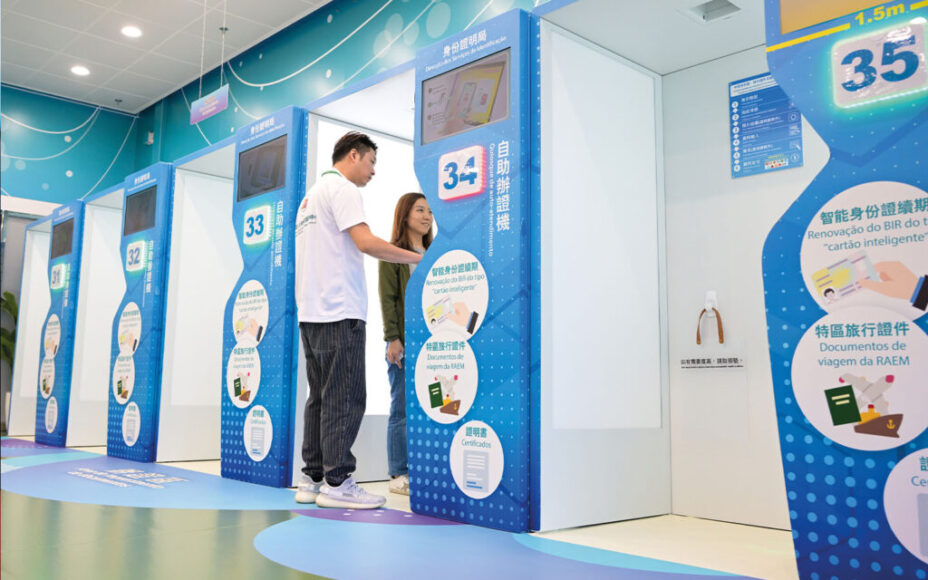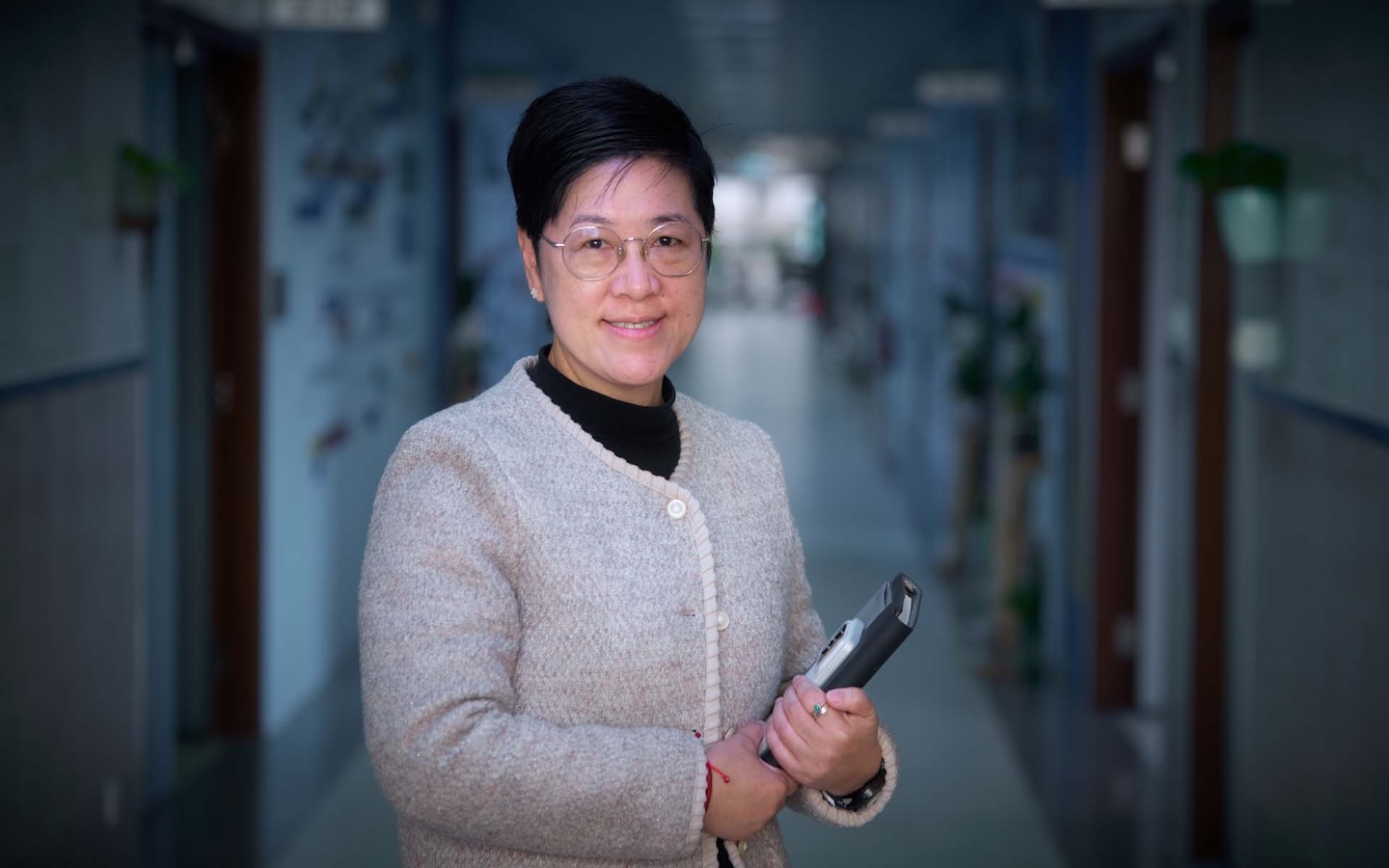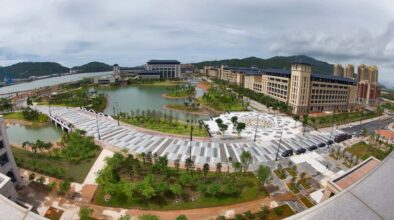In today’s fast-paced, digital world, governments around the globe are striving to meet the demands of their increasingly tech-savvy populations. Macao is no exception. The Special Administrative Region (SAR) has been steadily building a robust e-government infrastructure aimed at making services more efficient, accessible and transparent for residents. At the heart of this transformation is the Macao One Account, an integrated platform launched in 2019 that delivers electronic public services across sectors such as social welfare, transportation, healthcare and education.
The platform has garnered widespread praise from the local community. “Everything is inside the Macao One Account now, including my identity documents,” says Roger, a 37-year-old Macao resident who works as an administrative officer at Macao’s Health Bureau. “When I come back to Macao from travelling, I just scan a QR code on my phone at immigration. It’s really convenient.”
The platform has not only streamlined travel, but simplified daily life. “I can pay bills, retrieve e-banking passwords and access medical documents, all through the app. I don’t even need to step into a bank or clinic,” Roger shares.
Today, more than 621,000 people use the Macao One Account’s 430-plus services. Popular features include ‘My Health’, for viewing health records and making appointments at government health centres; ‘My Vehicles’ for managing car insurance and paying motor vehicle taxes; and ‘Electronic Identity’ for border crossings and passport applications.
The Public Administration and Civil Service Bureau (known by its Portuguese initials, SAFP) is the agency responsible for the app’s development and maintenance. It tells Macao magazine that the platform has “transitioned from a ‘government-oriented’ system to a ‘user-oriented’ one, focusing on delivering high-frequency, impactful services that have greatly simplified how residents manage daily administrative tasks.”
As the Macao One Account becomes increasingly integral to the daily lives of local residents, we explore the journey behind its development and how it’s transforming governance through cutting-edge technology.
Where the law and technology intersect
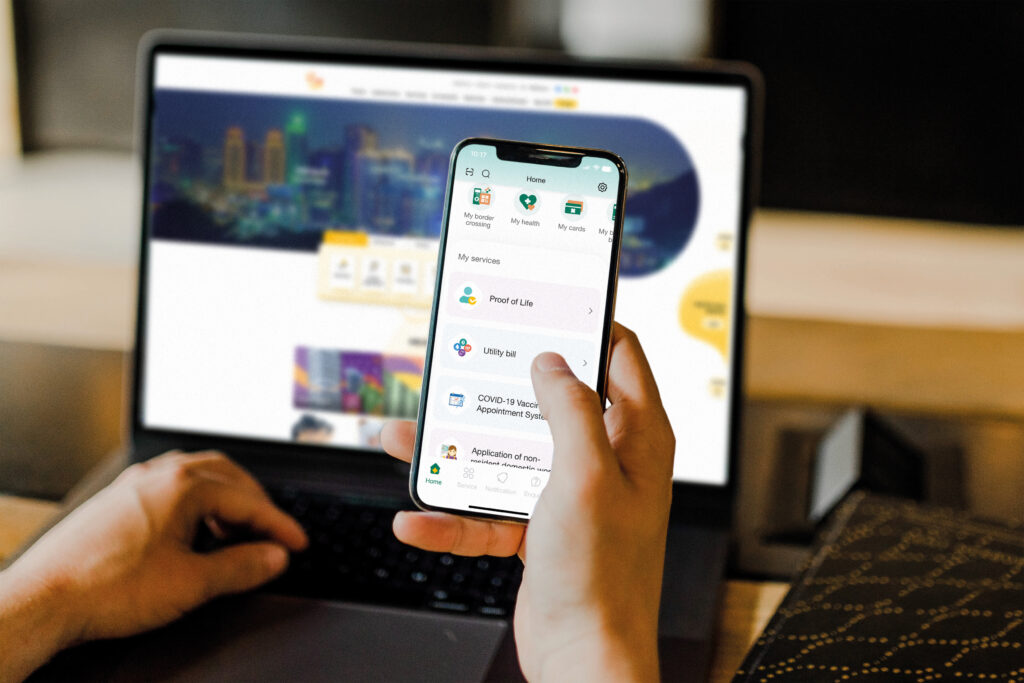
Macao’s e-governance journey began with a vision for streamlined, user-centric services. This vision first materialised in 2009 with the introduction of ePass, a platform offering limited online services like voter registration inquiries, medical report applications and a way to find out about provident funds. However, SAFP says the platform saw limited uptake due to a lack of legal support and insufficient focus on residents’ needs.
Learning from these shortcomings, the government released a new and improved version in 2019, calling it the Macao One Account. Ever since, this constantly improving platform has been empowering residents to manage a range of government services from a single digital interface.
A critical part of being able to deliver e-governance has been the establishment of a cloud computing centre, which also happened in 2019. “The centre is equipped with a robust cloud platform and cybersecurity systems, so that it can provide sufficient computing power, storage space, and security guarantees for departments. It ensures the safe and stable operation of various e-government projects,” SAFP explains. The centre can be considered a backbone for the project.
A year later, the government enacted the Electronic Government Law to complement Macao’s digital transformation. This expanded the scope of digital services, allowing residents to use electronic certificates, digital licences and facial recognition for secure identification. “The law has established the legal validity of actions like digital identification,” says the bureau. “This has not only made it more convenient for residents to enjoy e-government services, but also simplifies administrative processes within government departments.”
The new law has also enabled the Macao One Account to launch a fresh suite of electronic public services – things like letting residents apply for civil servant jobs through the app and foreign domestic workers process their stay permits online.
Redefining convenience
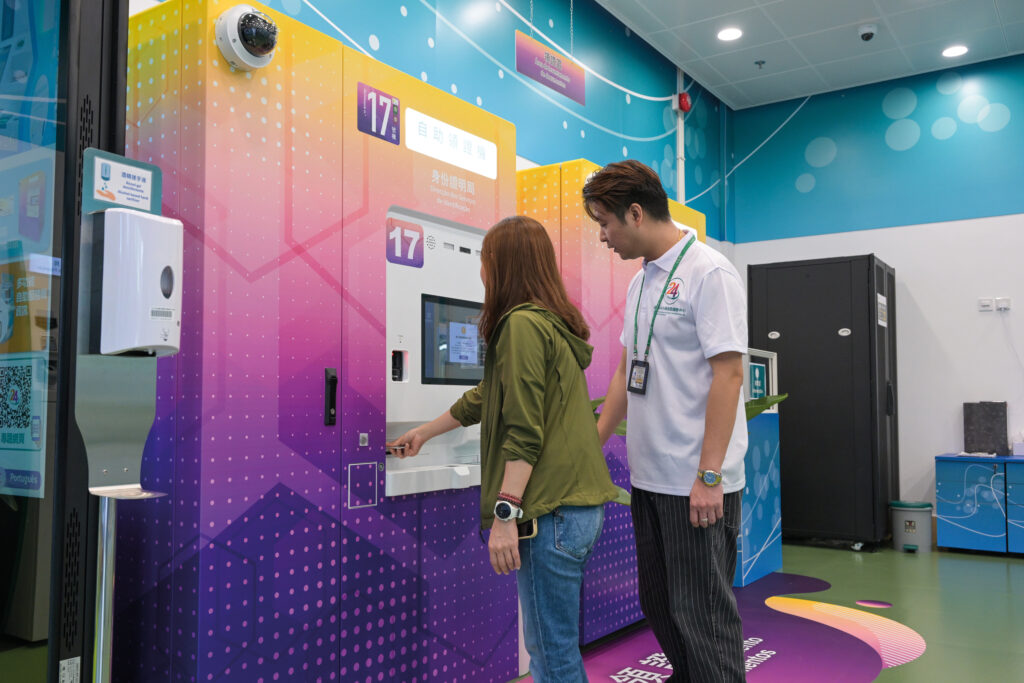
Before the Macao One Account, residents had to carry an assortment of cards to go about their days. Say, a patient card from the Health Bureau, a card from the Sports Bureau giving access to public sporting facilities, and a Senior Residents Card from the Social Welfare Bureau. But since 2021, the ‘My Card’ feature has consolidated these cards into a single digital wallet, with each e-card retaining the same legal validity as its physical counterpart.
That year also saw the platform introduce online proof-of-life verification for the Social Security Fund, the Social Welfare Bureau and the Pension Fund. With inter-department data integration, residents can now complete this verification from a mobile, whether they’re here in Macao, in the mainland or even overseas. You do this by logging in your One Account and performing a few facial recognition actions, like nodding or blinking into your phone screen. Family members are also allowed to help their parents complete the facial recognition process through their own accounts, in cases where less digitally literate parents find it challenging to do it by themselves.
“The Macao One Account makes it super convenient to access services online, and I can do everything from booking health appointments to managing vehicle registrations in one place,” according to Roger. “It’s a relief not having to go back to the government offices for simple tasks.”
An ever-evolving platform
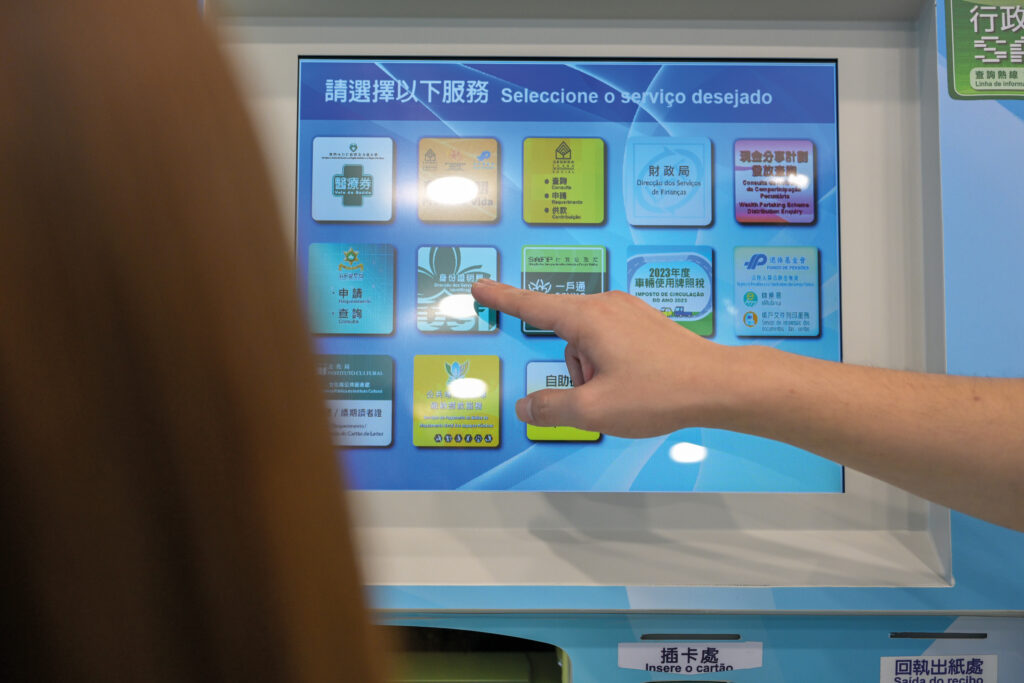
In 2022, the platform was upgraded to the Macao One Account 2.0, further expanding its service offerings. Residents can now submit court documents, pay litigation fees and settle taxes or utility bills through the app. The ‘My Information’ feature also provides timely updates on news, weather alerts and evacuation guidelines during natural disasters.
Last year, seven 24-hour self-service centres were established across the Macao Peninsula, Taipa and Coloane. These centres are equipped with kiosks for processing applications and issuing identity documents. For instance, the ‘Smart Collect’ smart locker allows residents, businesses and organisations to collect documents from the Identification Services Bureau and the Legal Affairs Bureau – as well as various licences from the Municipal Affairs Bureau.
“By implementing the concept of online-offline integration, the service opens up a convenient ‘on-the-go’ solution for Macao residents and allows them to handle tasks at fingertips,” says SAFP. “This has removed the need for queuing during office hours to collect documents and greatly improved convenience for the public.”
Of course, the evolution of the Macao One Account is more than just moving offline services online. Whole departments have had to restructure their processes, optimising them through interconnected data sharing that requires ongoing cooperation with other departments. For example, the ‘Integrated Birth Services’ feature, which launched this year, is a collaboration between the Public Administration and Civil Service Bureau, the Legal Affairs Bureau, the Identification Services Bureau, the Social Security Fund, the Health Bureau and Kiang Wu Hospital. The feature allows residents to register a baby’s birth and apply for the newborn’s ID card via the Macao One Account.
“Throughout the implementation of e-governance, different government departments have gradually recognised the benefits it brings to both residents and administrative work,” says SAFP. “This motivated them to continue the cooperation and support for the operation of the Macao One Account.”
To ensure a smooth digital transition for residents, SAFP has partnered with the Macau Productivity and Technology Transfer Center to run workshops educating the public on Macao One Account’s functions. These sessions help people maximise the platform’s benefits. Additionally, the government collaborates with departments like the Municipal Affairs Bureau to host lectures and workshops that specifically target seniors, to improve their understanding of e-services. More than 70 such events have been held since 2020.
Services beyond borders
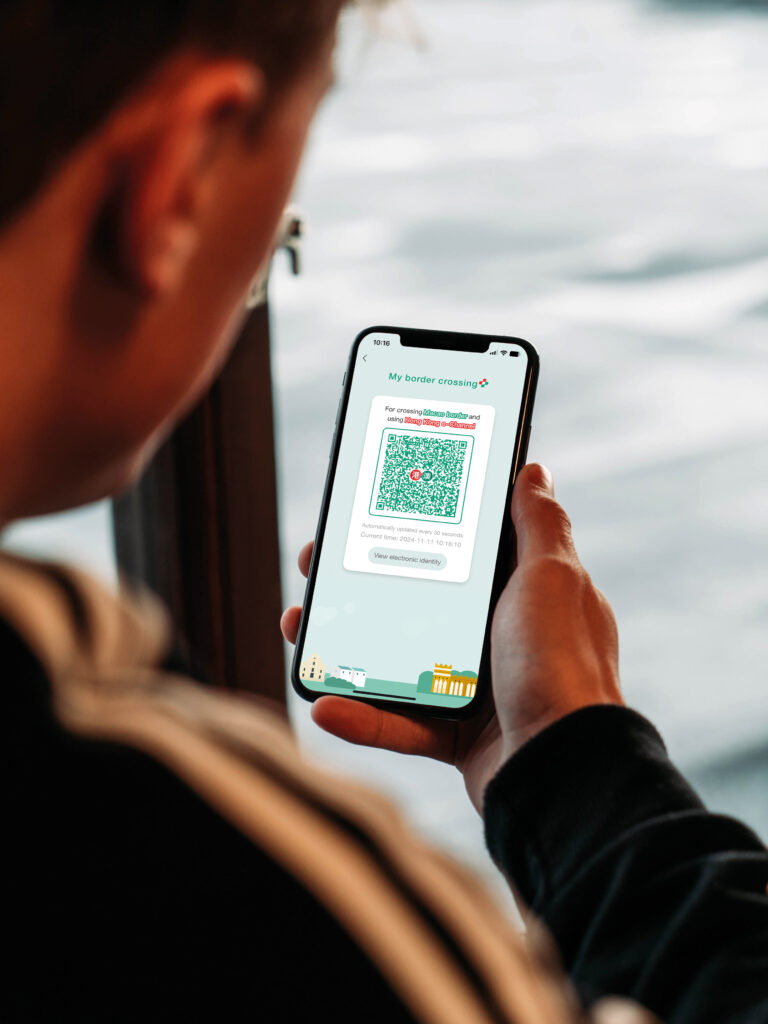
As Macao’s national integration progresses, the SAR’s government is extending the Macao One Account’s reach and cooperating with regional authorities across the mainland. In 2023, Macao’s Identification Services Bureau established self-service kiosks in the Guangdong-Macao Intensive Cooperation Zone, offering identification-related services such as passport applications and Hong Kong-Macao travel permits to Macao residents living in Hengqin, part of Zhuhai.
Meanwhile, the Macao One Account app offers ticketing and appointment services for Hengqin, covering social security, notarisation and real estate registration. According to SAFP, a 24/7 self-service centre is set to open there soon, with kiosks and remote service counters enabling residents to handle cross-border transactions via video conferencing.
“This effort aims to benefit the Macao residents studying, working and living in the cooperation zone,” says SAFP. “By allowing them to access these services without requiring them to return to Macao, the integration and development of daily life between Macao and Hengqin is further enhanced.”
The development of e-governance in Macao has been nothing short of transformative. What began as a legal and logistical challenge has evolved into a well-integrated, user-focused platform. The Macao One Account is not just an app – it symbolises the SAR’s commitment to modernising public administration.
